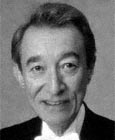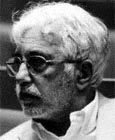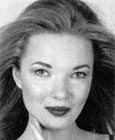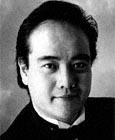|
|
| premièle
in September 2002 |
2004.11
La Traviata |
Music by Giuseppe Verdi (1847)
Libretto by Francesco Maria Piave
OPERA HOUSE
5 performances
November 22(Mon)6:30pm, 25(Thu)6:30pm, 28(Sun)3:00pm,
December 1(Wed)2:00, 4(Sat)3:00pm 2004
Approximate running time: 3 hours with 2 intermissions |
|
Conductor: Wakasugi Hiroshi
Director: Luca Ronconi
Set Design: Margherita Palli
Costume Design: Carlo Diappi
Lighting Design: Sergio Rossi
Choreography: Tiziana Colombo
<MAIN CAST>
Violetta Valéry: Marina Vyskvorkina
Alfredo Germont: Sano Shigehiro
Giorgio Germont: Christopher Robertson
|
|
| |
| Background |
| La Traviata (The Strayed Woman) is a masterpiece
that boasts of its solid popularity in Italian opera. The Brindisi
or the drinking-song sung in the scene of the evening party
in Act I is particularly famous. The opera is based on the drama
La Dame aux Camélias (The Lady of the Camelias)
written by Alexandre Duma fils after his novel of the same title,
based on an actual courtesan who lived in 19th-century Paris.
Inspired by the drama, Verdi, who had up to that time taken
spectacular historic stories and heroes created by literary
masters as the subjects for his opera, for the first time made
a pure yet ill-fated woman living in the contemporary age the
heroine for his opera. In terms of music as well, the composer
worked on reforming the traditional operatic format in this
work, and the score puts more emphasis on expressing the emotions
of the characters than on adhering to the traditional operatic
format, which made this opera new and modern at the time. It
was first performed at the Teatro la Fenice in Venice in 1853.
The title role of Violetta is a challenging one as she is on
the stage almost throughout the entire opera and in addition
to acting, the role calls for all sorts of techniques ranging
from brilliant coloratura to the power of a rich emotional expression
to a dramatic voice at the deathbed. Marina Vyskvorkina, who
will take on the challenge of singing Violetta in this production,
is a high-profile rising star, who is said to succeed Edita
Gruberova as a soprano singer. The NNTT premiere of La Traviata,
which adorned the opening of the 2003/2004 season, was well
received, with maestro Luca Ronconi praised in the Nihon
Keizai Shimbun for his “direction satisfying intellectual
curiosity.” |
| Synopsis |
| Parisian courtesan Violetta is courted by Alfredo, a son of
a wealthy man in southern France and a student in Paris, but
at first she hesitates to accept his earnest love. Impressed
by his sincere love, however, she opens her heart to him. Violetta
and Alfredo have been living together for some time. In Alfredo’s
absence, his father Giorgio Germont calls on her. He appeals
to Violetta to break off this scandalous relationship since
it is endangering the forthcoming marriage of his daughter.
Because of her love for Alfredo, she agrees and goes off leaving
behind a letter stating that they must part. Violetta returns
to Paris and goes to a party with her former patron Baron Douphol.
Alfredo then appears and accuses her of her unfaithfulness.
Germont arrives and reprimands his son for his conduct. Several
weeks later, she is seriously ill in bed with progressive consumption.
In his letter to her, Germont admits that he revealed her sacrifice
to his son. Alfredo enters her room and begs for forgiveness.
He promises that they shall spend the rest of their lives together
in happiness. He then realizes how seriously ill she is. Moved
by his words, she finds strength momentarily and rises to her
feet before falling dead. |
|
| |
| |
<Conductor> |
|
<Director> |
|
| |
 |
|
 |
|
| |
Wakasugi Hiroshi |
|
Luca Ronconi |
|
| <Main Cast> |
 |
 |
 |
| Marina Vyskvorkina |
Sano Shigehiro |
Christopher Robertson |
|




